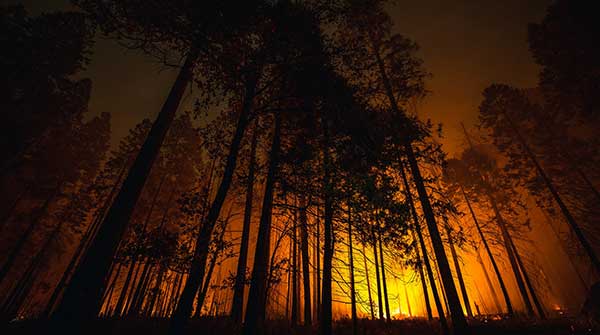 A funny thing happened in Powell River, B.C., the other day. There was a scheduled one-hour power outage that I heard about on the radio as I was driving the 30 kilometres into town to do some errands.
A funny thing happened in Powell River, B.C., the other day. There was a scheduled one-hour power outage that I heard about on the radio as I was driving the 30 kilometres into town to do some errands.
No big deal, I thought. Lights out in the mall perhaps.
My first stop was at the gas station to fill up the pickup. An attendant was out by the pumps telling customers that the station was shut down. The pumps wouldn’t pump and the credit card system was down, too. “Please come back in an hour.”
OK, I’ll just go to the bank and get some cash, I thought.
At the bank, the assistant manager was standing by the ATMs saying that all systems were down and no cash could be provided inside either. “Please come back in an hour.”
Off I went to the grocery store. Standing by the front doors was a cashier with the same message. “We can’t process any sales until the power comes back on – sorry!”
It all worked out an hour later but the experience was unsettling on several levels.
Back home that afternoon, I had a discussion with my neighbour, who is a retired long-haul commercial pilot. I really admire his planning thought processes. He has experienced hundreds of takeoffs and landings, and thinks carefully about what might go wrong in life.
His bottom line about power outages and rural living: “Always keep your gas tank filled, store extra provisions in the house and keep some cash on hand. Be prepared for surprises.”
All of this has come more into focus because of the freak January weather on the south coast, including storms where the wind blew in all directions in gusts of 70 to 100 km/hour.
Friends on Gabriola Island went five days without power. Friends on Salt Spring Island faced 10 days with blocked roads from fallen trees and downed power lines. Both had generators that fired up right away, but gas was at a premium and trips into Nanaimo to fill gerry cans revealed 100-plus-car lineups at gas stations and rationing of two gerry cans per customer.
Other friends had a very close and unsettling experience with carbon monoxide poisoning. A portable emergency generator was set up in a double garage, with the door wedged partially open. But still CO rose in invisible volumes to an upstairs bedroom to sicken the occupants. Quick family action and a trip to the hospital forestalled disaster.
All of these experiences are also conditioning my thinking as the 2019 spring beckons after four previous very dry springs and four summers of smoke. Another one is on the way and the very gradual heat uptake we’re all experiencing is already influencing other factors.
For instance, the local salmon hatchery on Lang Creek forecast 1,000 chinook salmon returners last fall, but 250 turned up, with smaller body size.
The Skelhp inlet mouth in front of our house was home to five humpback whales until mid-November this year, a late stay and unusually high numbers. In our 10 years of residency here, this has only happened in the past four years.
Last summer, many of the immature red cedars on our property started dying from their mid-section up, creating small groves of bizarrely living/dead trees.
This year, however, I will be most mindful of fire. Our farseeing qathet Regional District is already advertising and advising that we undertake mindful forest debris clearing around rural subdivisions and housing.
At first, the forest-raking guidance struck me as humorously Trumpian. Then I looked around our house and speculated how a forest fire in the undergrowth would impact our family. We live in an area with no fire department and the onus will be squarely on us to fight for survival.
I’m also aware that fire insurance premiums are going up across B.C. and Alberta in and near communities that have experienced summer fires.
Taken altogether, I’m strongly convinced that it’s time to exercise the precautionary principle. I was first introduced to the concept by a team of climate scientists I worked with at the University of Calgary in the 1980s.
We all now share a social responsibility to protect ourselves from exposure to climate change induced harm and we need to take decisions accordingly.
Troy Media columnist Mike Robinson has been CEO of three Canadian NGOs: the Arctic Institute of North America, the Glenbow Museum and the Bill Reid Gallery.
The views, opinions and positions expressed by columnists and contributors are the author’s alone. They do not inherently or expressly reflect the views, opinions and/or positions of our publication.


